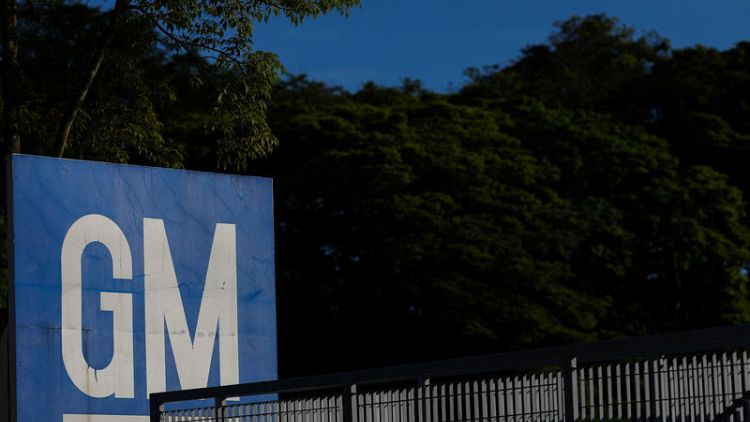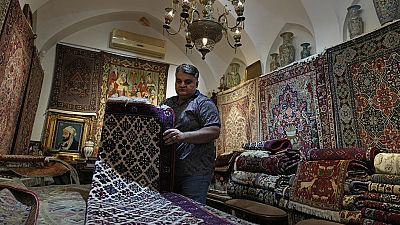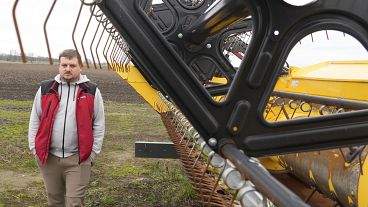By David Shepardson and David Alexander
WASHINGTON (Reuters) - U.S. President Donald Trump, who is engaged in a trade war with Beijing, said on Friday that the largest U.S. automaker, General Motors Co <GM.N>, should begin moving its operations back to the United States.
"General Motors, which was once the Giant of Detroit, is now one of the smallest auto manufacturers there. They moved major plants to China, BEFORE I CAME INTO OFFICE. This was done despite the saving help given them by the USA. Now they should start moving back to America again?" Trump said in a post on Twitter.
Trump appeared to be referring to a Bloomberg News story that reported GM's hourly workforce of 46,000 U.S. workers has fallen behind Fiat Chrysler <FCHA.MI> as the smallest of the Detroit Three automakers. Over the past four decades, GM has dramatically cut the size of its overall U.S. workforce, which numbered nearly 620,000 in 1979.
GM did not immediately comment on Trump's tweets.
Trump's ire with GM comes as contract talks with the United Auto Workers union with the Detroit Three automakers intensify ahead of a Sept. 14 deadline. Trump has previously attacked GM for building vehicles in Mexico and for ending production at plants in Michigan, Ohio and Maryland.
GM's decision to close four plants in the United States is a central issue in the contract talks.
China is the world’s largest auto market and government policy favors automakers assembling vehicles there, and not importing them from overseas.
In response to Trump’s latest tariffs, China said last week it will reinstitute 25% tariffs on U.S.-made vehicles.
GM sold 3.6 million vehicles in China last year accounting for 43% of its worldwide sales. GM booked $2 billion in equity income from its China operations last year.
GM imports a small number of vehicles from China. In June, the Trump administration rejected a request from GM to exempt its Chinese-made Buick Envision from a 25% U.S. tariff on sport utility vehicle models.
The midsize SUV has become a target for U.S. critics of Chinese-made goods, including leaders of the UAW members in key political swing states such as Michigan and Ohio.
(Reporting by David Shepardson and David Alexander; Editing by Steve Orlofsky)



